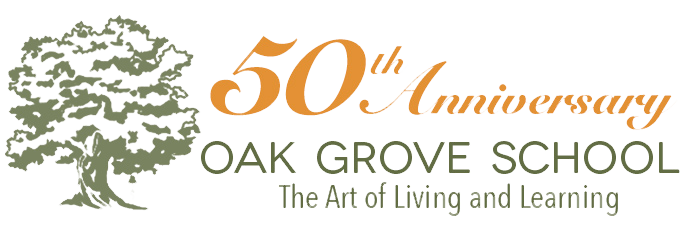Outdoor Education
Camping Trips
Our spring trips have officially begun! Last week, the freshman and sophomore classes backpacked the Gene Marshall trail, beginning at Reyes Creek Campground in Lockwood Valley and ending at Rose Valley. They arrived safely home on Friday to warm showers and reports of ice cream and large amounts of pasta.
Our juniors are currently on day 7 of a 10-day expedition through the southwest—river rafting the Kern River near Sequoia National Forest, trekking through Death Valley, hiking up a portion of the Mt. Whitney Trail and traversing up to Angel’s Landing in Zion National Park.
This past Thursday night, kindergarten students and their families camped on our athletic field. Together, they enjoyed bonfire stories, a sing-along, and roasted marshmallows in the darkness. This practice of spending the night at “school,” is where our students begin to develop camping skills (pitching a tent, sleeping outside, fire safety) while in a familiar and safe place with their family.
In the next few weeks, our students in 1st through 8th grades will travel progressively further away on increasingly more challenging trips. Immersive outdoor trips enhance learning through direct experiences. In early elementary, the camp-out moves away to Carpinteria, first with parents, then the following year, without parents. The students practice being with teachers and peers away from home, but geographically close.
In upper elementary, the focus moves to places further away with more physically challenging activities: group bike rides, longer hikes, and bouldering. Then they are off to our local forest carrying their own packs, swimming in water holes, and out of cell phone range. Our 7th and 8th graders travel by plane to other states to sleep in teepees, to river raft, and to study glacier science. In a couple of weeks, this group will head to the Canyonlands Field Institute in Moab, Utah. While there, they will participate in white water expeditions through ancient canyons and engage in active, meaningful, transformative, hands-on, outdoor curriculum that integrates science, history, literature, and art.
These trips are developmentally appropriate, with each building on the one before. Students practice essential life skills, gain a sense of agency and grit, and also deepen their relationship with the natural world.
For our parents, these trips offer an opportunity to practice trusting other adults to care for our children away from home. As I have shared here before, from the moment of birth our children begin growing away from us. Each moment brings new opportunities for children to gain confidence in their ability to be separate, for parents to trust that the child is capable of separating, and for both to trust that this separation is natural and safe. These trips allow the child and parent an ever-increasing practice in separating. There are things that cannot be learned conceptually—digging a hole in the wilderness to go to the bathroom, overcoming a fear of water or heights, pushing ourselves physically beyond what our mind believes is possible (just one more step), and, perhaps the most difficult of them all, letting a child grow away from us.










